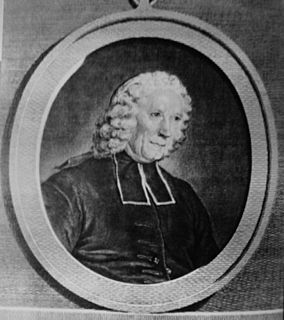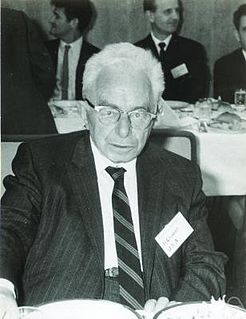A Quote by Karl Wilhelm Friedrich Schlegel
Like Leibniz's possible worlds, most men are only equally entitled pretenders to existence. There are few existences.
Related Quotes
A novel is balanced between a few true impressions and the multitude of false ones that make up most of what we call life. It tells us that for every human being there is a diversity of existences, that the single existence is itself an illusion in part, that these many existences signify something, tend to something, fulfill something; it promises us meaning, harmony, and even justice.
It is not always the most brilliant speculations nor the choice of the most exotic materials that is most profitable. I prefer Monsieur de Reaumur busy exterminating moths by means of an oily fleece; or increasing fowl production by making them hatch without the help of their mothers, than Monsieur Bemouilli absorbed in algebra, or Monsieur Leibniz calculating the various advantages and disadvantages of the possible worlds.
Were the talents and virtues, which Heaven has bestowed on men, given merely to make then more obedient drudges, to be sacrificed to the follies and ambition of a few? Or, were not the noble gifts so equally dispensed with a divine purpose and law, that they should as nearly as possible be equally exerted, and the blessings of Providence be equally enjoyed by all?
I have found that the person with a sense of story built in from childhood is in better shape than one who has not had stories . . One knows what stories can do, how they can make up worlds and transpose existence into these worlds. . . .One learns that worlds are made by words and not only by hammers and wires.
Now, as there is an infinity of possible universes in the Ideas of God, and as only one of them can exist, there must be a sufficient reason for God's choice, which determines him toward one rather than another. And this reason can be found only in the fitness, or the degrees of perfection, that these worlds contain, since each possible thing has the right to claim existence in proportion to the perfection it involves.
Sören Kierkegaard has another answer: human existence is possible as existence not in despair, as existence not in tragedy; it is possible as existence in faith... Faith is the belief that in God the impossible is possible, that in Him time and eternity are one, that both life and death are meaningful.
Do you like people? Most people claim that they like people with, of course, a "few exceptions." When the exceptions are added together it becomes clear that they include a vast majority of the people. It becomes equally clear that most people like just a few people, their kind of people, and either do not actively care for or actively dislike most of the "other" people.
It is certainly true that most men need some kind of a God. A few, and they are the men of genius, do not bow to an alien law. The rest try to justify their doings and misdoings, their thinking and existence (at least the menial side of it), to some one else, whether it be the personal God of the Jews, or a beloved, respected, and revered human being. It is only in this way that they can bring their lives under the social law. . . .
That religion, or the duty which we owe to our Creator, and the manner of discharging it, can be directed only by reason and conviction, not by force or violence; and therefore all men are equally entitled to the free exercise of religion, according to the dictates of the conscience; and it is the mutual duty of all to practice Christian forbearance, love, and charity towards each other.







































